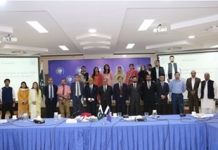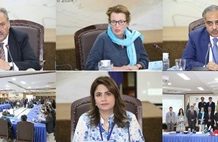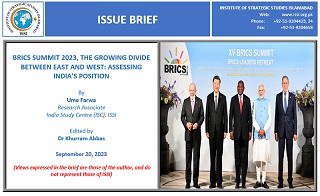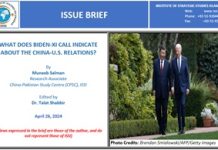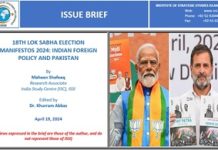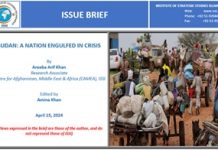Held in the backdrop of intensifying major power competition, the recent heads of state meeting of BRICS – the group of rising global economies – became a much-anticipated and happening event on the international scene. The Summit was another milestone in the unfolding of multipolarity as the BRICS nations – Brazil, Russia, India, China, and South Africa – gathered to deliberate on the expansion of the group and the process of so-called ‘de-dollarization’ as part of efforts to encourage the trends to use local currencies in their trade and financial exchanges. The key members of BRICS, China and Russia, maintained their long-held positions to make adjustments and reforms in the ‘neo-liberal’ world order for a just and democratic transition into multipolarity. However, India – as it is an active partner of the U.S. and multi-alignments directed at containing China – appeared to be the odd one out. Especially, in the midst of these multi- and mini-alignments, the question arises whether India would be able to emerge as a trusted partner in the multilateral forums dominated by China and Russia while they are proactively seeking to create a post-Western world order.
The 15th BRICS Summit, held in Johannesburg under the leadership of South Africa from 22-24 August 2023, was an exclusive gathering of emerging and developing economies, where the Western countries were denied any chance to participate. The host sent invitations to 70 countries across the world including the African continent[1]. However, Western countries were excluded from the guest list,[2] and no invitation was sent to major countries such as the U.S., UK, Germany, and France. Before the Summit, French Foreign Minister Catherine Colonna, stated that “the French President wishes to become the first Western leader to attend the Summit,”[3] while stressing the need to engage in a dialogue in the face of disagreements.[4] Though the French President kept waiting for the invitation, he did not receive one.[5] While maintaining BRICS’ inclusivity being the primary reason to exclude the Western countries, South Africa’s BRICS emissary Professor Anil Sooklal further clarified, “Though we have not invited the Western countries, BRICS has never said they do not speak to them.”[6] Having said that, it goes without saying that the range of differences between the East and the West appears to be growing, and the BRICS’ exclusion of the Western countries indicates further evidence of the discomfort of the top economies from the Global South, especially Russia and China, with the ‘neo-liberal’ world order.




